David Salsbery Fry, a renowned bass who has sung on several of the world’s greatest stages, publicly disclosed his disability in 2015. Since that time, he has become a powerful advocate for performers with disabilities. This brought him to Opera Praktikos (OPrak), New York City’s first disability-affirmative opera company. He sat down with co-founders Greg Moomjy and Marianna Mott Newirth a few weeks after OPrak hosted an industry screening and community discussion of the documentary imperfect, which addressed disability creativity in the performing arts. At OPrak, we incorporate disability from the beginning of a project rather than fitting it in as an afterthought. This extends to both the audience’s and performers' experiences. What follows is a candid conversation in which David offers his experience and wisdom as a singer with a disability. We approach our discussion through the lens of disability creativity, which views disability as the artist’s greatest asset towards shaping a character and building a career.
An Artist’s Take on Disability Creativity with David Salsbery Fry
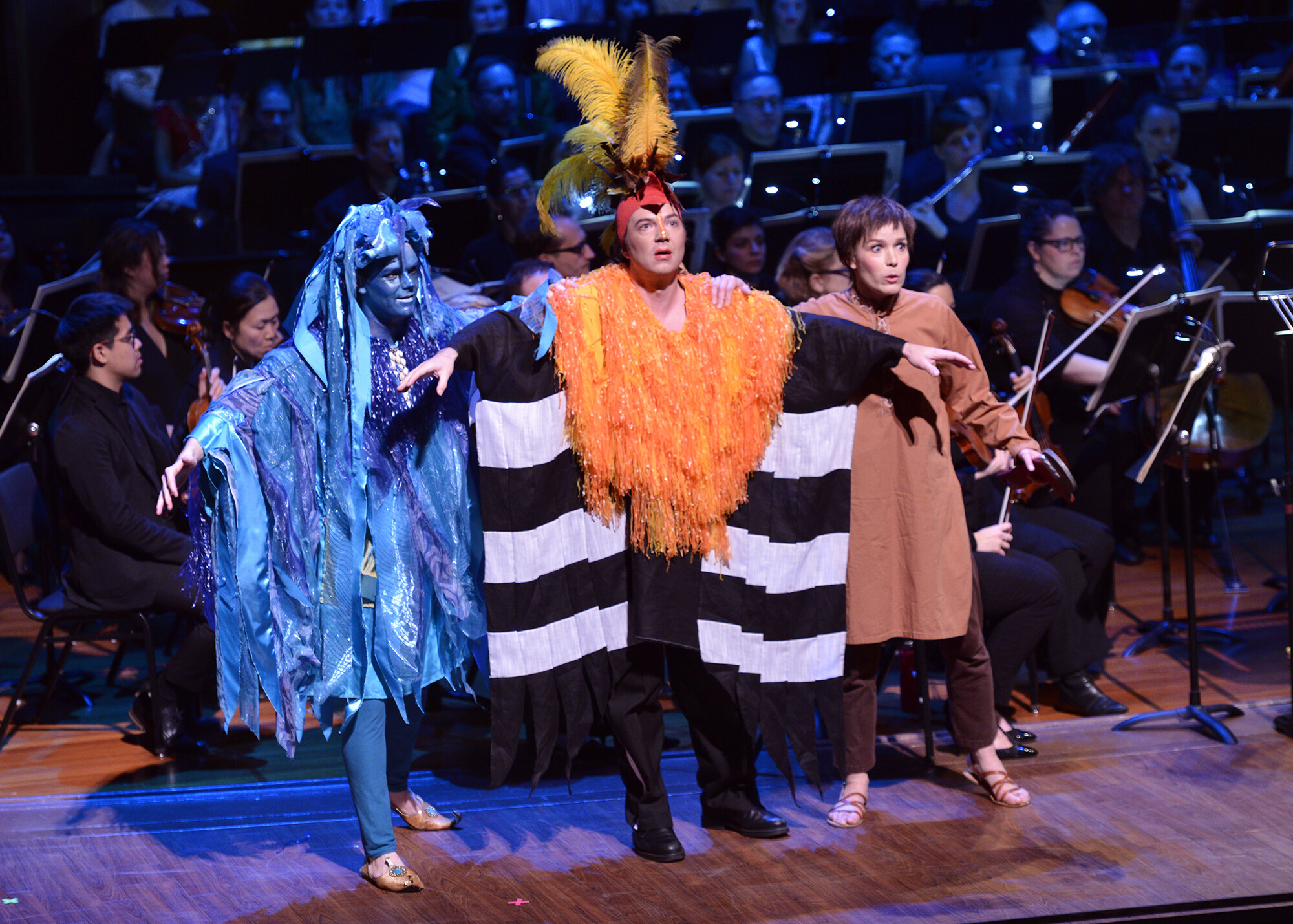
Brian Giebler, David Salsbery Fry, and Heather Buck in Haroun and the Sea of Stories at Boston Modern Opera Project. Music by Charles Wuorinen. Words by James Fenton. Directed and conducted by Gil Rose. Costume design by Brooke Stanton. Photo by Clive Grainger.
Marianna Mott Newirth: Thank you so much, David, for joining me and Greg for a conversation about disability creativity in opera.
David Salsbery Fry: My pleasure.
Marianna: So, what inspired you to become an opera singer?
David: I came to opera through acting, musical theatre, classical music, and choral music. Opera synthesizes all of these performance genres into a single, powerfully affecting art form. The seeds were planted my sophomore year of high school when I saw my first operas, Suor Angelica and Gianni Schicchi, at Lancaster Opera Company. I joined the chorus then started college as a double degree student in pre-med biology at Johns Hopkins University and voice performance at Peabody Conservatory. I enjoyed singing so much I decided to make it my professional career. Singing really spoke to me.
Marianna: You are public about your hemophilia and what led to your decision to disclose your condition. Can you talk about the reaction you got?
David: That’s a difficult question. I made my disclosure in two stages. I was in conversations with the National Hemophilia Foundation to publicly disclose from an advocacy standpoint. They advised me to talk with my employer first, so I wrote to Peter Gelb, general manager of the Metropolitan Opera. He replied, commending me on my bravery—a theme that keeps coming back around. I hoped to begin a dialogue with the administration about representation of performers with disabilities on stage. They weren’t interested in anything other than legally mandated accommodations. I finished my contract and haven’t worked for them since.
Afterwards, I made a broader public disclosure and shared my experiences as a performer with a disability in an interview for Classical Singer magazine. A number of people read the article and talked about how brave I was, etc. But every single door open to me at the time was shut in the aftermath of that article. So I have been extraordinarily dismayed by the reaction since I made this disclosure in 2015.
My aim is to be as close as possible to someone who is not contending with a coagulation disorder.
Marianna: I hear you. I'm sorry. I know this is a hard question, and I appreciate your candor. Can you talk about any adjustments that a company has ever made to accommodate your needs?
David: This is another interesting question for me. There is always a risk of physical exertion or injury on the stage. All kinds of things can happen in a live performance. I manage my clotting factor levels to ensure they are high enough for me to recover from any injury. My aim is to be as close as possible to someone who is not contending with a coagulation disorder.
Marianna: But that's on you to do.
David: Yeah.
Marianna: So is there anything that opera companies should do or have done for you to make that biological balancing act a little bit easier?
David: Before prophylaxis was widely available, I would infuse every other day or so. What was most helpful was having cold storage for my medication nearby in case I ever needed to intervene quickly. But any request for accommodation would reveal my condition. When I was a student at Juilliard I lived in Inwood, which is far away from the school, so I had to appeal to some committee to arrange reliable access to a small refrigerator. They approved my request but would not tell me who was on the committee. I spent the rest of my time at Juilliard not knowing who knew and who didn't know about my condition.
This leads me to the need for opera company attitude adjustment. Later, I was working with a director who was unsatisfied with the physical characterization of my role. He came up to me after rehearsal asking why I carried so much tension in my elbows then proceeded to grab my arm and shake it. I have elbow contracture as the result of multiple injuries over the course of my life. It's not tense; it's chronically contracted. Any character I build is going to have elbow contracture! There's nothing I can do about it. Had this director sought clarification from me about the cause of my elbow contracture, he would not have just assumed that I was tensing my elbows in a way that didn’t suit his concept for what my character should look like. As much as my elbow contracture may be a really overt example here, it’s relevant to the discussion of including performers with disabilities in the workspace. The need for attitude adjustment is universal. It is not confined to just performers with disabilities.
Marianna: Yes. It’s the practice of stepping outside of what we think we know to get into someone else’s world for a moment.
I look forward to the day when accommodation is an open dialogue between instructor and student or institution and employee, or coworker and coworker.
David: I say that as emphatically as I do because it’s arguably at the foundation of our work. Accommodation means embracing everyone’s humanity and individual circumstance. It’s the recognition that you are dealing with unique individuals. We should do this for everyone. I look forward to the day when accommodation is an open dialogue between instructor and student or institution and employee, or coworker and coworker. I hope that through collective action and advocacy we reach an inflection point. When that happens, maybe companies that were hesitant to hire me since my disclosure will be more amenable. I would like that very much.
Marianna: What good discoveries have you made since disclosure? Any upside to all you’ve dealt with?
David: The one comfort for me in all of this is that I am singing better now than at any other point in my life. I owe a great deal to my decision to disclose my hemophilia. Opera requires complete vulnerability and an unfettered infusion of emotion into vocal expression. If I withheld or concealed something from an audition panel, that concealment was reflected in my voice. I undertook the decision to disclose because the pressures of concealment affected my mental health. My elbow contracture was worsening, needle tracks from antihemophilic factor infusions were more prominent, and my previously non-apparent disability was becoming more and more apparent, so I chose to disclose. And only then did I discover my singing was better than ever before. Things that tied me in knots were suddenly free flowing. That's beautiful, right?! I didn't expect that, and I'm thrilled it happened.
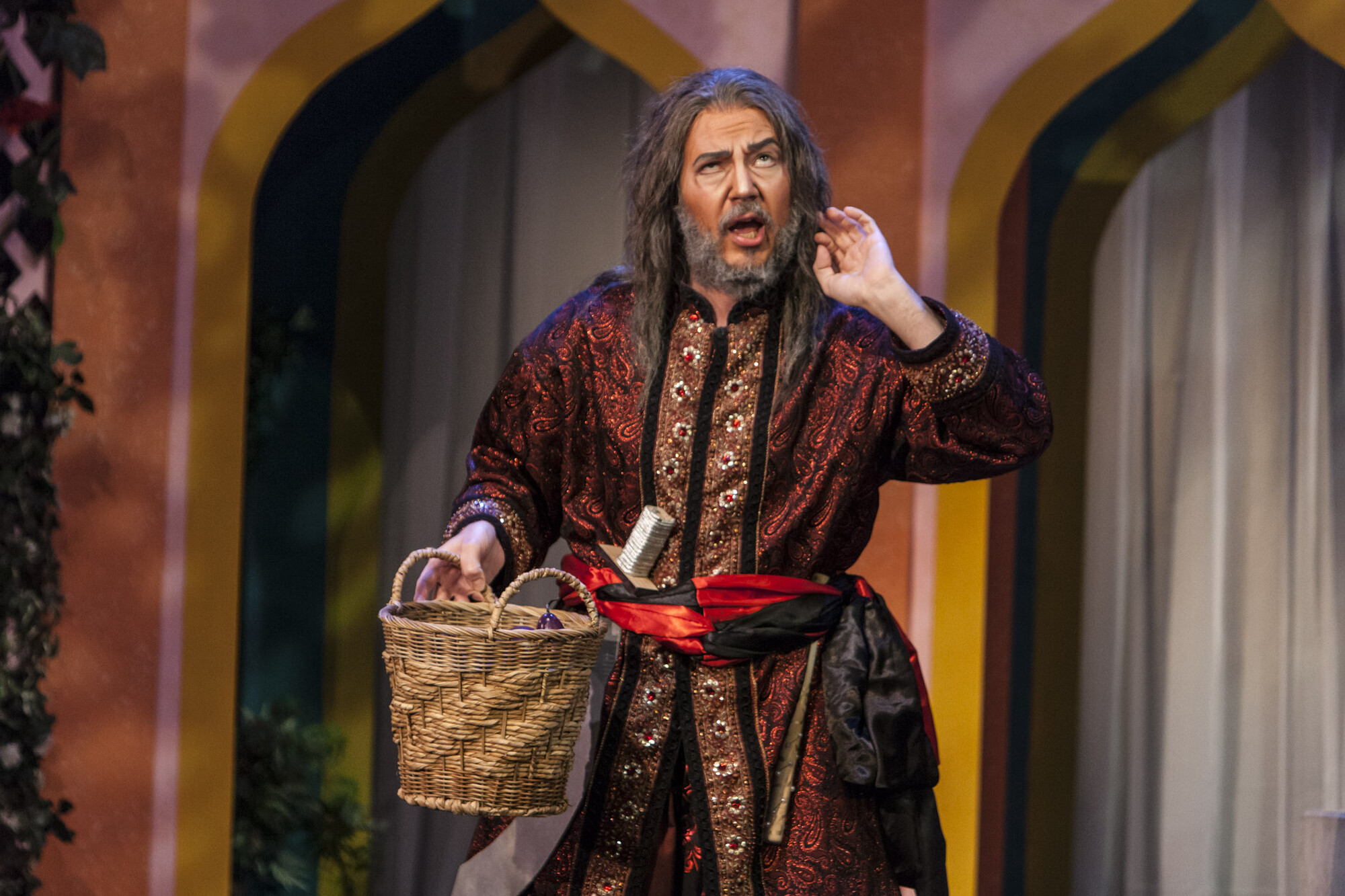
David Salsbery Fry in Die Entführung aus dem Serail at St. Petersberg Opera. Music by Wolfgang Amadeus Mozart. Words by Gottlieb Stephanie. Directed by Melissa Misener. Conducted by Mark Sforzini. Set design by Warren Sort. Costume design by Glenn Avery Breed. Photo by Jim Swallow.
Marianna: That's what OPrak is all about. This is what we call disability creativity. That's why we're here: to help those discoveries happen.
Moving forward… In your opinion, what is most important to producers of opera today?
David: Organizations are concerned with fundraising and ticket sales over artistic considerations—an unfortunate consequence in the United States. We have very little government funding for the arts, and the only thing that will shift our art form is generating a reliable revenue stream. So now the Metropolitan Opera is discovering, “Wow! New works are getting higher ticket sales.” Right? New music resonates with modern audiences. They make the shift once they see diverse films are making money. Take, for example, the LA Times article about the CAA study that found that diverse casting increases box office potential. The world of film, television, and theatre started the shift when productions representing people with disabilities began making money and winning awards.
Marianna: Like the film CODA.
David: Right. CODA, another archetypical example. This shift needs to happen in every regional opera company. It may take fifteen years to catch up, but if we continue our advocacy, that will make a difference.
I am better able to perceive my own reactions now that I am no longer denying a fundamental aspect of myself.
Marianna: Can you talk about a time during rehearsal when your disability was understood to be an asset?
David: Hmm. I wish I could. My answer, after careful consideration, is no. But… I do recall one conversation I had with a director in advance of rehearsals. He called and said “Hey, I would love to get your take on the character as I put this production together. Let’s have a chat.” In just one twenty-minute conversation, this director got a feel for who he was working with and what I brought to the role. I’d like to see more of this. If one builds a production around the people they cast, they do a universal good. Achieving that requires dismantling many hierarchical aspects of the opera production team. Directors should want to know their performers, know about them, learn what makes them tick, use everyone to their greatest advantage. For the sake of our art form, let's begin there! Then we can create conditions whereby disability will be understood to be an asset.
Marianna: Beautiful, thank you.
How do you build a character? Is your approach different now as compared to before you disclosed?
David: I am better able to perceive my own reactions now that I am no longer denying a fundamental aspect of myself. What shifted is my ability to better explore my craft. I get to experience what truly scares me, or what is really funny about a scene. I get to ask, “What connects my character in act one to that character in act two? What builds that bridge between the overture and the last scene of the opera? For that process to work, I have to be ready to be scared. I have to be ready to feel the laugh. I have to have my reactions be honest and unfettered. I couldn’t fully do that before. Honestly, this freedom should be present for everyone right from the very day that libretto lands in your inbox.
Marianna: Perfect. Alright, I'm starting to bring it home: what would you say to artists with disabilities who want to break into opera?
David: Opera is a contemporary, living, breathing art form, but there are aspects that make you feel like you are going back to a less enlightened and less pluralistic time. I have heard this on so many different fronts—from intimacy directors, for example, who report the industry lags fifteen to twenty years behind the rest of the performing arts world on diversity training. It feels many times like you are rocketing backwards when you work on an opera. It hurts. It really hurts, and there's not much one can do to prepare for how jarring it’s going to be. All I can say is go in with open eyes and be ready to engage. Know the struggle; know it will hurt and know this art form is capable of evolving.
I love opera. I love doing opera, and I want to be part of the change that is possible here. But—and this is incredibly important—have non-opera friends. Have colleagues outside of the opera world who engage in the best of what society can offer. Because you will need reality checks. You will need breaks. You will need people in your life to tell you that the discrimination you experienced in rehearsal was wrong! They will return you to sanity, and you can go back to work another day, restored.
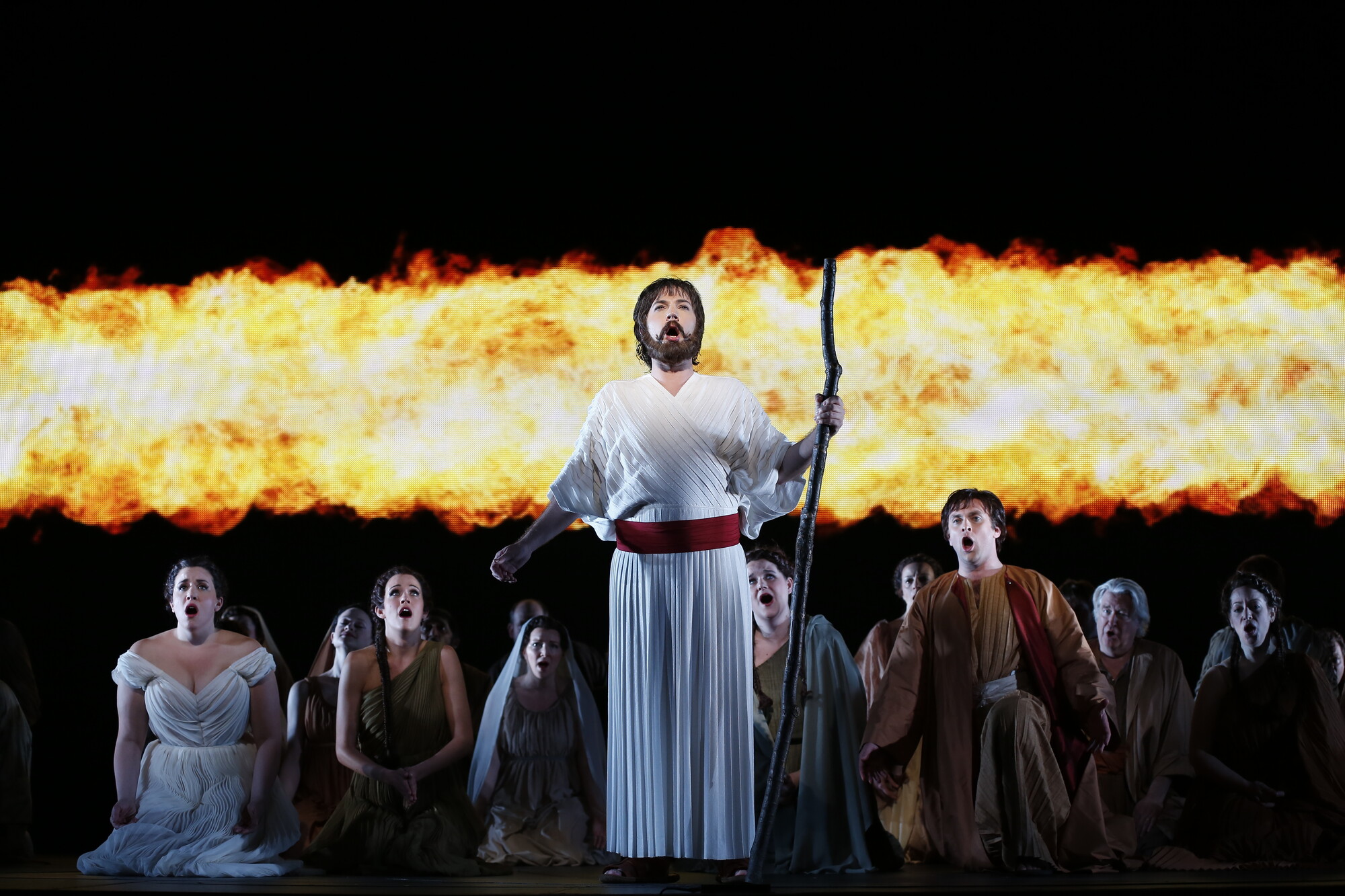
David Salsbery Fry in Mosè in Egitto at New York City Opera. Music by Gioachino Rossini. Words by Andrea Leone Tottola. Directed by Michael Counts. Conducted by Jayce Ogren. Video design by Ada Whitney. Photo by Carol Rosegg.
Marianna: What about those who are already in this business who have a non-apparent disability? What would you want to say to them in taking those first possible steps into disclosure?
David: I wish this were not true; my income is down 95 percent from what it was before I disclosed. It’s very difficult to say that disclosing helped. It's a hard choice to make, a deeply personal and individual choice that’s very challenging. Whether or not you choose to disclose your disability, what matters most is that you be honest with yourself. Please be honest with yourself. Embrace who you are. Recognize that as much as you may imagine someone can see through you, most people are not that perceptive. You can be true to yourself while concealing your disability, if you feel that you must. Only once you've done that work can you ask the question, “Who else do I want to share my truth with?”
Marianna: What does disability artistry mean to you?
David: Opera happens between performers and audience in unfettered emotional carrier waves that impact them both. That means I need full access to my emotional landscape as a performer, using my life experiences as an artist with a disability. My job is to welcome audience members who are ready to meet me in that space, which may mean it will be emotionally challenging in a way that they're not accustomed to. Their responsibility is to decide it's worth working through the discomfort. To discover what's on the other end of those initial reactions. What they may discover on the other side can deepen their capacity for empathy. Something becomes available to audience members when they can contend and wrestle with their initial reactions to an artist with a disability on stage.
Marianna: You've been part of what we have been doing at OPrak from pretty early on. We thank you so much for who you are, what you bring to the table, and your wonderful generosity.

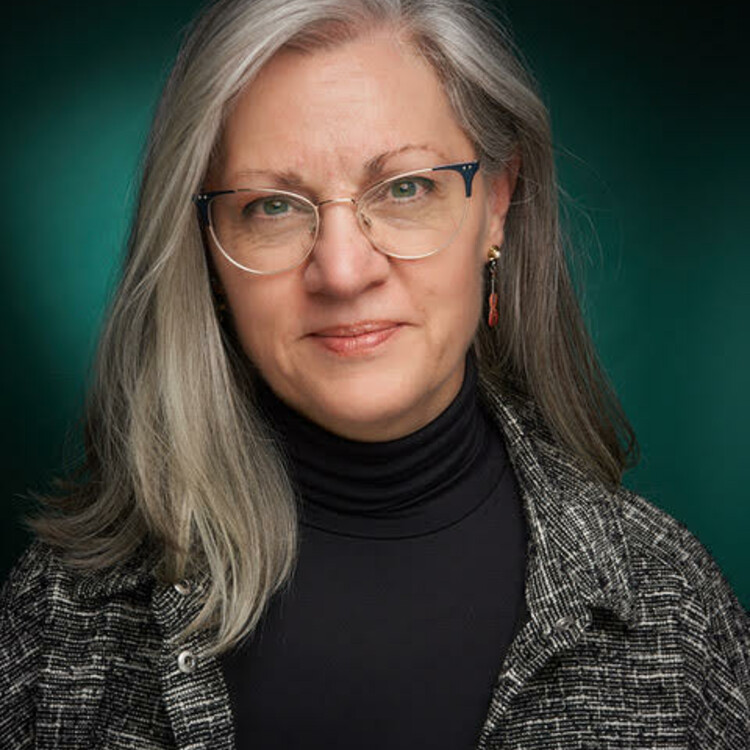
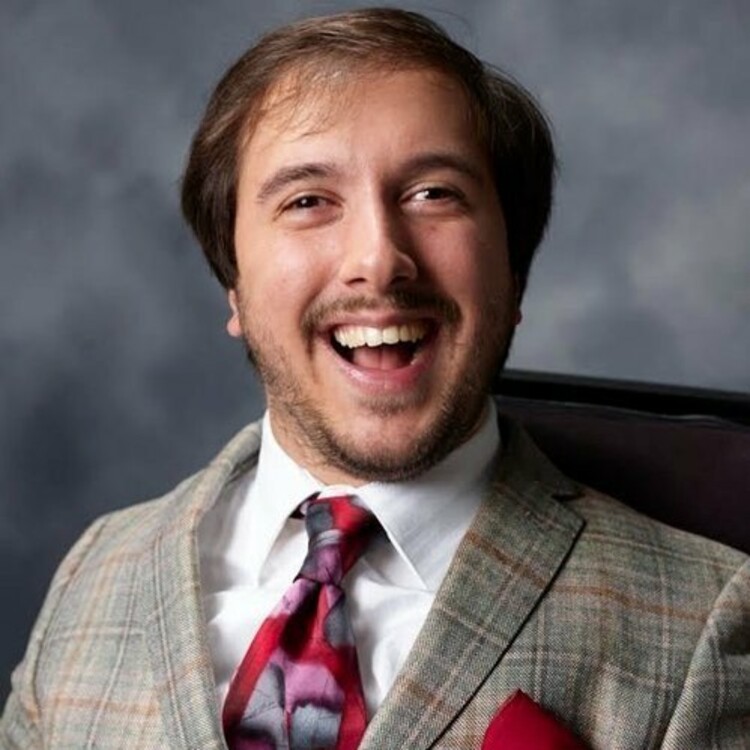
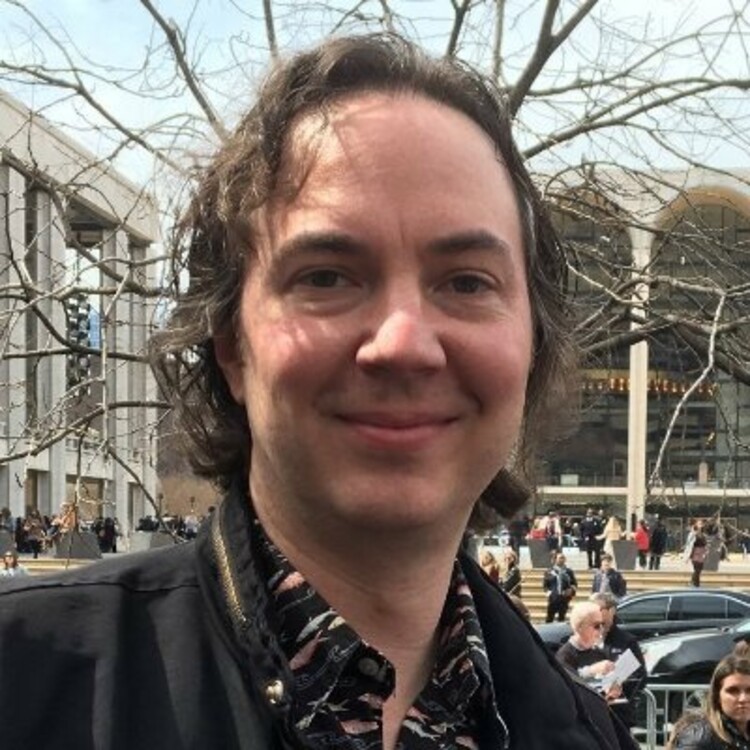
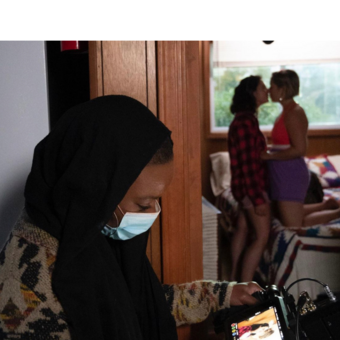


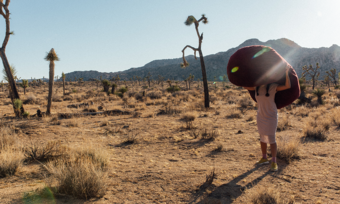


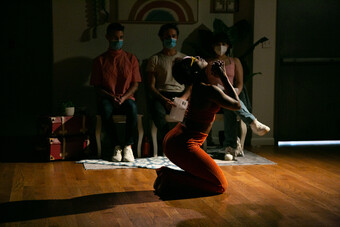

Comments
The article is just the start of the conversation—we want to know what you think about this subject, too! HowlRound is a space for knowledge-sharing, and we welcome spirited, thoughtful, and on-topic dialogue. Find our full comments policy here